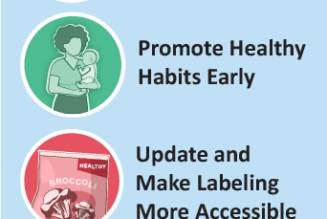

Although most adults aged 55 or more years responding to a Mather Institute survey indicated that they were highly motivated to eat more healthfully, they also indicated that they need some help turning those motivations into healthy practices.
The results of a survey of 688 adults aged 55 or more years on a research panel maintained by Mather are outlined in “Food for Thought: Older Adults’ Views on Healthy Eating,” providing insight into ways providers might help residents along their health and wellness journey.
Nearly three-fourths of respondents were somewhat (31%) or very (42%) interested in eating healthier, with 24% indicating that they already eat healthy, according to the survey results.
When it came to motivations for eating health, maintaining physical health and preserving brain health came out on top, with 93% of respondents citing each as a reason. Other motivators included managing or preventing disease (91%), feeling energetic (88%) and managing weight (86%).
“This suggests that labels that identify specific foods and menu items as ‘brain healthy’ may encourage people to make healthier choices,” the report read.
When asked about healthy eating habits, the most common behavior was reading nutrition labels (47%), followed by minimizing consumption of processed foods (38%) and sweets (29%).
Those not already engaging in healthy eating behaviors indicated that they were likely to try limiting processed foods (78%) and sweets (73%), and reading nutrition labels (70%). They also said that they would be likely to eat fewer carbohydrates (66%), change portion sizes (65%) and change calories consumption (50%). Only 34% said that they would consider speaking to a physician or a nutritionist to develop a personalized dietary plan.
When it comes to adopting a specific diet, at least 90% of respondents said they were familiar with the low-fat, vegan, Mediterranean and Atkins diets, with 68% citing the Mediterranean diet as the most appealing. Half as many found a low fat (36%) or DASH (31%) diet appealing. Even fewer were likely to participate in a Keto (23%), Atkins (19%), paleo (15%) or vegan (14%) diet.
Despite a desire to eat more healthfully, almost one in five respondents said they could not afford healthy food. Fewer respondents cited access to healthy food (6%) and time constraints (8%) as barriers to more healthful eating.








